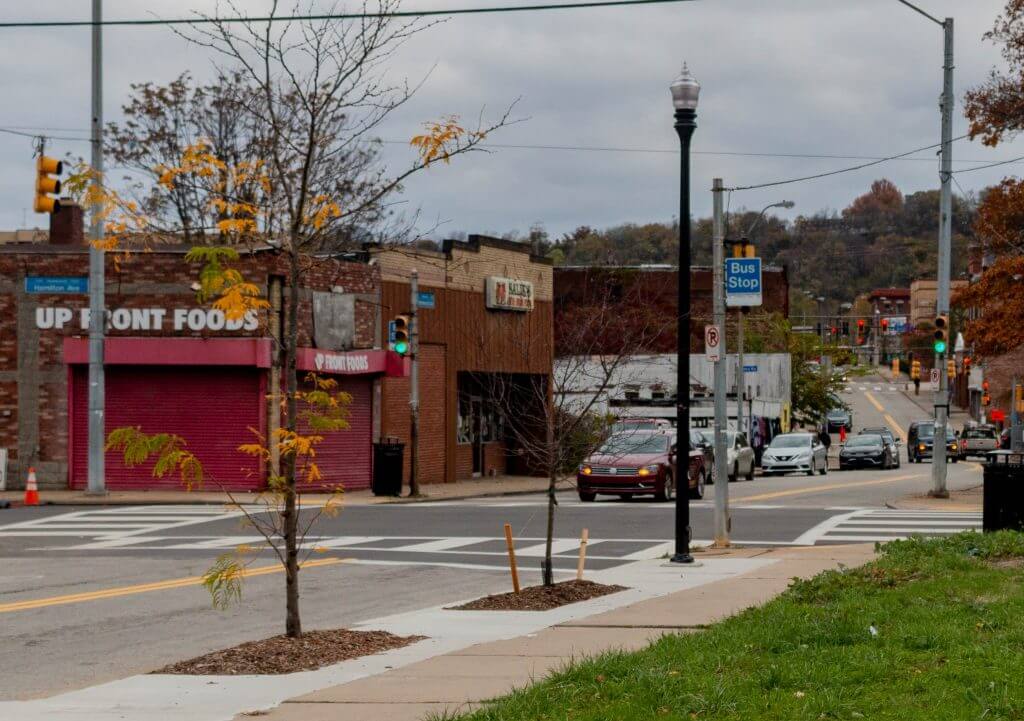Editor’s note: This article is part of a larger series called Solution Stories, which aim to tell the story of the work Forward Cities is helping to guide in cities across the country. For additional background on the specific approach taken in communities like Franklin County, please visit the first article in the series found here.
Pittsburgh, like many post-industrial cities, has struggled to center equity in its economic development strategy. Entrepreneurship, in particular, has been a challenge. Traditionally under-connected, under-resourced entrepreneurs or aspiring small business owners have continued to be left behind. As one of Forward Cities’ Community Entrepreneurship Accelerators, we hope to address the lack of equity in entrepreneurship as quickly and as effectively as possible.
First, as all projects of this nature should begin, we centered the voices of those impacted. A Neighborhood Inclusion Compass (NIC) was used in concert with a local innovation council to select the neighborhoods in which we would focus. This process yielded two distinct zones; zone 1 includes the contiguous neighborhoods of Homewood, Larimer, and Wilkinsburg, and zone 2 includes the contiguous neighborhoods of Allentown, Knoxville, and Mt. Oliver. If you are not from the area, it is difficult to see where one of these neighborhoods starts and the other begins.
Each neighborhood has its own culture, identity, and challenges. We surveyed current, aspiring, and discouraged entrepreneurs including those with side hustles in all of the aforementioned neighborhoods and asked about the barriers they face or have faced that have prevented them from becoming more successful.
Four key barriers emerged:
- Lack of awareness of resources
- Lack of cultural competence in service providing
- Exclusive definition of a ‘typical entrepreneur’
- Lack of alignment or coordination between entrepreneurial support organizations (ESOs)
The minimal viable solutions (MVSs) we developed are relatively simple to execute and test within a short time, but also high impact–with the potential to be scaled if proven effective. The ideas came from a facilitated discussion that included those most affected by the lack of equity in the ecosystem.
One of our four MVSs that came from the session, the Entrepreneurial Resource Navigators program, is a perfect example of the process working as intended. The Navigators will serve as ‘intake’ specialists to help aspiring entrepreneurs and existing business owners navigate and access the city’s existing comprehensive entrepreneurial resources and services. The work will be prioritized around meeting 1-on-1 with existing and aspirational entrepreneurs and getting them connected to local and regional resources, typically delivered by one of various ESOs. Akin to ‘case managers’ in social work, these navigators will not be business consultants but rather have expertise regarding the offerings of Pittsburgh’s entrepreneurial ecosystem and the necessary relationships to help clients reach the right services.
Navigators will also have a better sense of the challenges faced by minority entrepreneurs that will prove necessary to ensure that the barriers clients currently face while trying to interface with existing ESOs be removed or reduced by their involvement. The intakes will also provide an opportunity to collect crucial situational data with each relationship, allowing us to continuously grow our overall understanding of the ecosystem and the barriers people face within it one entrepreneur at a time.
There are two ways in particular that make this community-generated idea especially impactful. First, it is tremendously difficult to determine exactly how to add resources to an ecosystem that has its current resources underutilized. If people do not know about services they can access, adding more won’t necessarily solve the problem. And while this does help get the most out of the existing ecosystem, it is also an opportunity to pull in the ‘ecosystem builders’ who have been the unsung heroes of equitable development for years before the term was coined.
Vernard Alexander and Samantha Black, the first two navigators that will be working in Zone 1 and Zone 2, respectively, are exactly who we need to be investing in to build more equitable economies. They are already known to be navigators and connectors, committed to building minority wealth and ensuring people are no longer left out of the economic growth Pittsburgh is experiencing. They also have extensive experience in the communities in which we are focusing.
Strategically investing in people and communities is key to building a more equitable ecosystem, and the navigators are an essential first step in that direction.
Stay tuned to see how our pilot phase goes! We will update everyone on our progress when we are in the ‘to scale or not to scale’ phase.
